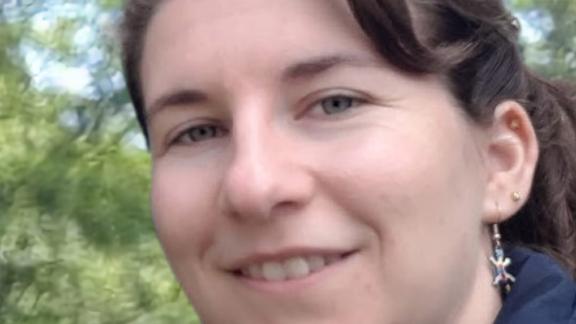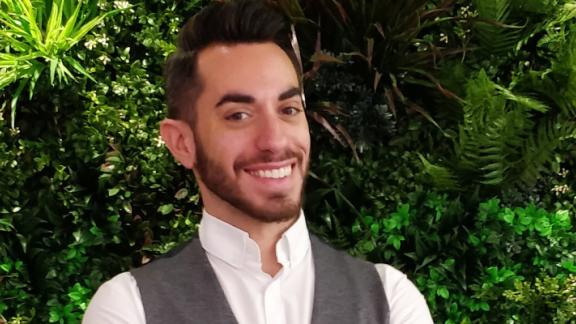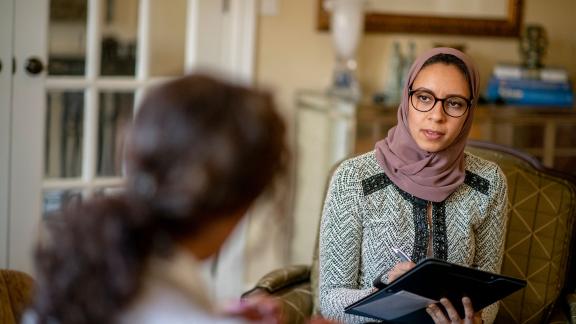Sometimes all it takes is a conversation: redressing BME injustice

Recognising that culturally and professionally she is in a position to help address bias within the workplace, Louise Pramas, transformation lead at NHS England and NHS Improvement, takes us on her journey of discovery.
I'm white, ciswoman, straight, Christian, without a disability, in my mid-thirties, recently married and prefer the pronouns she/her. I come from a working-class background and only have one protected characteristic which might cause me any negative issues, and no significant compounding intersections.
I recognise that this background places me in a position of privilege. It is a position I am keen to use in order to make a difference and influence others so that together we can rock the world. I am, however, mindful of not wanting to be a ‘white saviour’, and I fear 'getting something wrong' which may cause unintended harm or upset. I understand that this is all part of my learning experience.
A well-practiced feminist, I only became aware of intersections when hearing Professor David Williams speaking about the impact of racism on health, and he outlined the hierarchy of privilege in terms of race and sex: white men at the top, followed by white women, black men, with black women at the bottom. Which got me thinking, what about black lesbians, or black trans women? What if a black lesbian also had a disability? Just how many hurdles would she need to overcome?
Safe spaces
Opportunities to learn about the experiences of others tend to present themselves when we make the effort to create safe, inclusive spaces to share a little more about ourselves as individuals.
I've always tried to role model inclusivity, and ‘lift as I climb’. In my HR business partnership role at South London and Maudsley NHS Foundation Trust, I had a small team of two fantastic women working with me, both of whom are black. I created spaces for them to step into and show how capable they are, or gave them a nudge and a reminder in those moments of self-doubt, when the voice of imposter syndrome was too loud. They both secured promotions on their own merits shortly before I left as their line manager, but I'm honoured to have been in a position to help them to flourish.
Our relationship continues and is also a safe space where I can reflect, sense-check and ask questions. We recently had a chat about the cultural norms of some African nations and how this may impact on preferred working patterns and arrangements such as bank/agency work, especially as women are often expected to juggle work, care for children/family members and send money back to their respective homelands to support relatives. It opened my eyes to the expectations of these women and the impact it may have on their wellbeing and the support they need from their workplace.
In my current role, I wrote some guidance about financial health and wellbeing in support of the health and wellbeing response to COVID-19. In a team meeting, I raised a memory from school that interventions involving interest may not be appropriate ways to support Muslim colleagues. This led two colleagues with Jamaican and Nigerian heritage respectively, to introduce me to the concept of 'pardner' and ‘esusu’, saving schemes popular in those communities.
Curious exploration of what other norms might be out there began a domino effect that has very much left me feeling richer in my awareness and that I hope help my colleagues to feel heard and recognised.
I love the #MyNameReallyIs campaign. It never occurred to me that colleagues took on a different, more anglicised name to help them feel accepted or to 'fit in'. Movements like this give me hope that the rich tapestry of cultures will soon be felt, enjoyed and seen by others too.
Ready to learn
My journey feels very much one of exploration, learning and, hopefully, understanding. I am learning to recognise my own privilege and am seeking out my blind spots. This isn’t always comfortable, and I realise that I won't always ‘get it right’, but my intention is to absolutely do better. I want to help amplify the stories and experiences of the people of colour that I know, helping to generate the space for them to share them themselves, while recognising that some people might be more willing to hear their stories from me, a white person, rather than the person who had the experience.
To paraphrase Lord Victor Adebowale in an NHS Confederation ‘in conversation’ event, if you're not representing all of the colleagues and people working in your organisation, then you're not functioning effectively as a leader.
My hope is that by sharing my reflections, others will feel more comfortable doing the same. We are all leaders, whether formally or informally and we have to be the change we want to see in the world. Many of our friends and colleagues have waited too long to see or feel that change.
Louise Pramas is transformation lead at NHS England and NHS Improvement. Follow her on Twitter @SussexLouiseP



